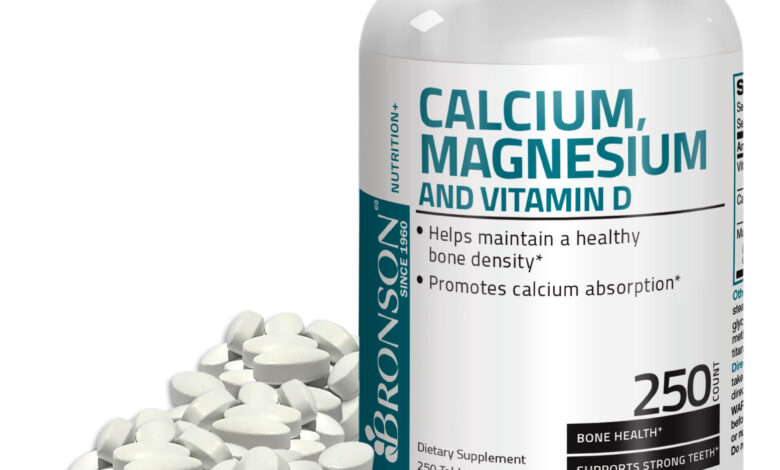Cal Mag Supplements: Uses, Benefits, Side Effects

Calcium and magnesium supplements are available as individual supplements and in combination. Calcium and magnesium are minerals that are both important for bone density and have opposite effects on nerve, muscle and clotting activity. Calcium stimulates and magnesium relaxes or decreases activity.
The ratio of calcium to magnesium in the blood is roughly 2:1. Calcium has been overemphasized and magnesium has been underemphasized. Many get too much calcium by consuming dairy products and taking calcium supplements yet may be magnesium deficient causing a huge imbalance in these minerals.
Magnesium is the fourth most abundant mineral in the body with 50 per cent in bone, 25 per cent in muscle and 24 per cent in other tissue and organs. Only one per cent is in in the blood, yet serum blood levels are maintained at all costs potentially sacrificing the needs of other tissues if intake is inadequate.
What is calcium and magnesium good for?
Magnesium: Magnesium supplements help bones form and remain strong. It enables the small mineral crystals that comprise part of your bone structure to increase in density and gain strength. Magnesium is good for allowing your bones to absorb calcium more readily. The benefits to this are seen in the calcium section.
Aside from strengthening your skeleton, magnesium is good for:
- Establishing an energy-yielding metabolism
- Healthy muscle function
- Electrolyte balance
- Routine functioning of the nervous system
- Traditional protein synthesis
Calcium
Of all the essential minerals found in your body, calcium is the most abundant. Nearly all of your calcium is stored in your bones and teeth. Like magnesium, calcium is vital to bone health. It enables bones to develop and grow, keeping them strong and dense up to the age of around 25. After 25 your bones begin to lose density as part of the ageing process. Calcium helps slow this decline.
Calcium also contributes to establishing:
- Muscle function
- Blood clotting
- Neurotransmission (nerve cells passing signals to each other)
- Digestive enzyme function.
Why calcium needs magnesium to be effective
Your body doesn’t rely on magnesium to absorb calcium. But without it, calcium can become toxic, depositing itself in soft tissues, kidneys, arteries and cartilage rather than in bones where it has the greatest benefit. This can lead to quite some severe health conditions. Balancing calcium with the right amount of magnesium is good for potentially stopping harmful issues occurring. calcium needs magnesium to help stop toxic absorption.
How much calcium and magnesium do I need?
Calcium-magnesium supplements are mainly available in capsule form, though some companies also sell powdered versions
The typical daily dosage recommendations for these nutrients are:
- Calcium: 1,000 mg — 100% of the Daily Value (DV)
- Magnesium: 400–500 mg — 100–125% of the DV
Side effects
Currently, no side effects have been reported from calcium/magnesium supplements.
However, moderate to high doses of these individual nutrients are associated with various adverse effects, including:
• headaches
• nausea and vomiting
• diarrhea
• constipation
• stomach pain and cramps
• loss of appetite
• muscle weakness
• numbness and tingling
If you experience any of these symptoms, consider lowering your dosage or consulting your healthcare provider.
Can you overdose on Cal Mag?
Cal Mag overdose can occur when someone takes more than the normal or recommended amount of the supplement. The overdose may be by accident or on purpose.
If you or someone you are with overdoses, call your local emergency number (such as 911), or your local poison control center can be reached directly by calling the national toll-free Poison Help hotline (1-800-222-1222) from anywhere in the United States.
Symptoms of an overdose of calcium and magnesium include:
• Bone pain (from chronic overuse)
• Constipation
• Decreased reflexes
• Diarrhea
• Dry mouth
• Irregular heartbeat
• Poor balance
• Shallow, rapid breathing
• Skin flushing
• Stupor (lack of alertness).
Calcium overdoses are linked to kidney stones and a higher risk of heart disease, it’s especially important to stick to the dosage recommendations on the packaging.





